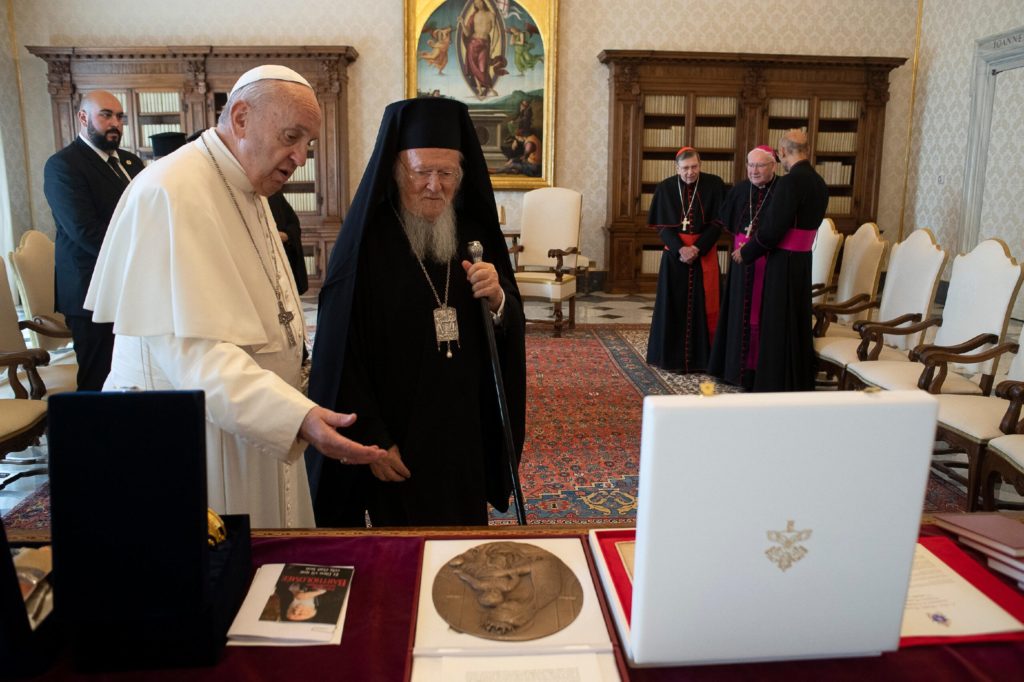Continuity from the Unitatis redintegratio
During the presentation press conference, Cardinal Kurt Koch, President of the Pontifical Council for Promoting Christian Unity, explained that the document is based on "the Decree Unitatis redintegratio of the Second Vatican Council in the Encyclical Ut unum sintand in two documents of the Pontifical Council: the Ecumenical Directory and The Ecumenical Dimension in the Formation of Those Engaged in Pastoral Ministry.". However, it is not a mere repetition of such documents, but a more concrete and orderly presentation, with the novelty of offering practical recommendations at the end of each section.
A guide for bishops
The purpose of the document is to "to assist and guide the Catholic bishops in their service of promoting Christian unity through their ministry". Thus we find ourselves with a text designed to help the bishops to carry out and fulfill this ecumenical responsibility, which is not just another responsibility of their episcopal ministry that can be postponed or carried out in an optional way, "but more than a duty, it is an obligation".
The structure of the vademecum
The text contains two parts. The first part is entitled "Promoting ecumenism in the Catholic Church"The book deals with what the Catholic Church must do to fulfill its ecumenical mission, which is a real challenge for Catholics. This part highlights the structures and persons active in the ecumenical field, both at diocesan and national level, as well as the use of the media, a point to which he pays special attention as very useful tools in the development of ecumenical dialogue.
The second part is entitled "The Catholic Church's relations with other ChristiansThe "Dialogue of the Catholic Church", and includes the four ways in which the Catholic Church relates to other Christian communities, namely, spiritual ecumenism, the dialogue of charity, the dialogue of truth and the dialogue of life.
Inspiring the development of ecumenical action

As Cardinal Kurt Koch pointed out at the presentation of the vademecum "....However, it was not a question of repeating these documents, but of proposing a brief, updated and enriched synthesis of the themes that have been presented during the last pontificates and always from the bishop's point of view: a guide that can inspire the development of ecumenical action and that is easy to consult.".
Indeed, this would be one of the most enriching elements of the present document which is concretized in those practical recommendations at the end of each section together with a series of principles, which serve the bishop as a guide and offer experiences and ideas for a healthy ecumenism, as the same document states: "...".First of all, ecumenism does not consist in a compromise solution, as if unity had to be achieved at the expense of truth. On the contrary, the search for unity leads to a fuller appreciation of the truth revealed by God.".
Towards unity
For this, remember that "the virtue of charity demands that Catholics avoid polemical presentations of Christian history and theology and, in particular, that they avoid misrepresenting the positions of other Christians. (cf. UR 4, 10)". On the contrary, it urges us to seek points of contact, such as prayer, conversion and holiness; the reading and study of the Holy Scriptures; the Week of Prayer for Christian Unity; common feasts and liturgical cycles such as Christmas, Easter and Pentecost; ecumenical pilgrimages; etc.
Finally, the vademecum presents the existing Catholic documents on ecumenism, as well as an appendix with a list and a brief presentation of the dialogue partners of the Catholic Church at the international level. The latter is very interesting because it allows to know the other agents with which the Church carries out this dialogue, so that the bishops are properly informed to carry out this mission on which special attention and interest has been given.







